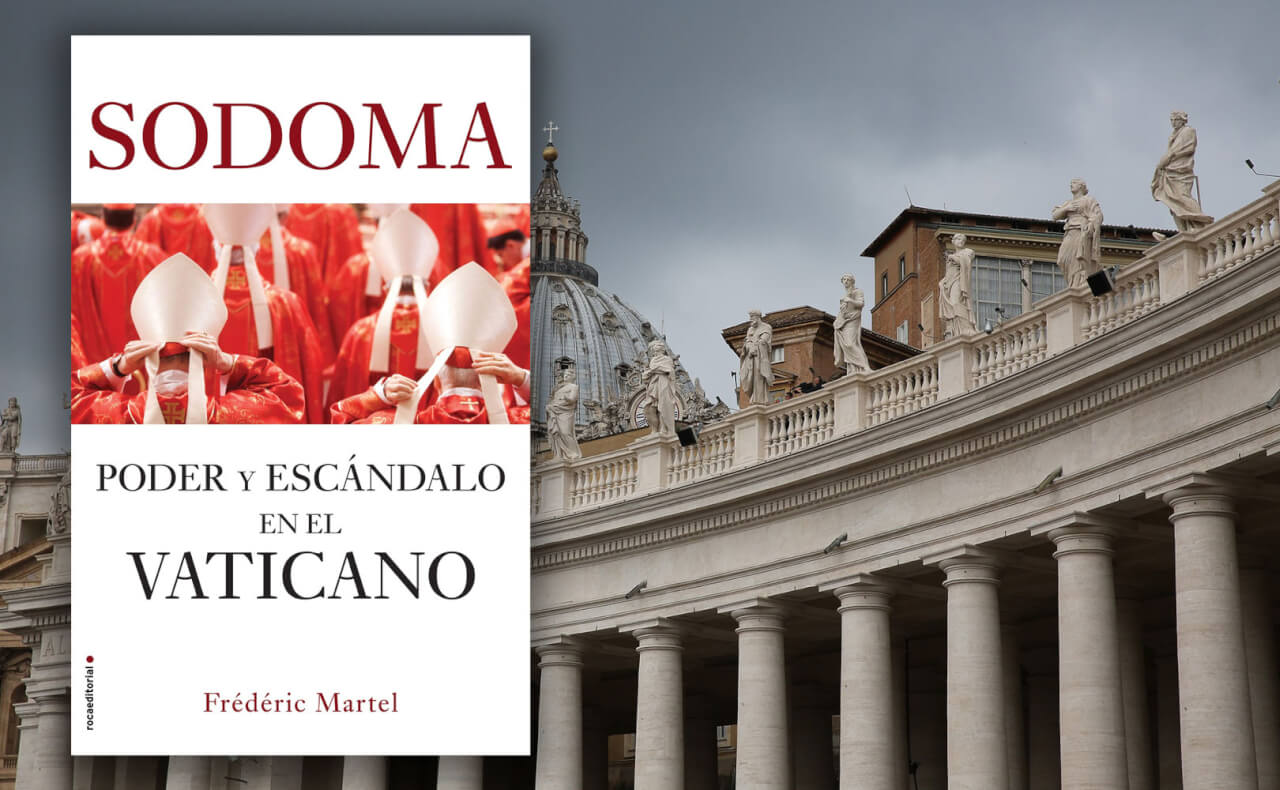Editor’s Note: Despite our stated concerns about the forthcoming Martel book about homosexuality in the Vatican, it presents information that is undeniably going to shape the conversation around the abuse crisis going forward. This, from Marco Tosatti, concerns an important piece of the puzzle.
Sodom [which in English is entitled In the Closet of the Vatican], the new book by Frederic Martel we have been discussing in recent days, contains a sensational announcement. According to the author (in the English version of the book), it is true that Pope Bergoglio was informed by Archbishop Carlo Maria Viganò about Theodore McCarrick’s history of predation toward seminarians and young priests, but he did not consider it that important. Consequently, not only did Francis relax the restrictions that Benedict XVI had imposed on McCarrick (restrictions confirmed by Viganò as well as by Cardinal Marc Ouellet), but Francis also used McCarrick as an adviser for appointments in the United States. (The promotion of Cardinal Kevin Farrell to camerlengo and entrusting Cardinal Blase Cupich with the organization of the summit on child abuse are only the latest confirmations that McCarrick’s influence continues, if ever they were needed.) In addition, Francis used McCarrick as his personal representative both in the United States (with President Obama) and abroad in China, Armenia, Iran, and Cuba.
In our opinion, this is an extraordinarily interesting case of “friendly fire,” because if there is anyone whom Frederic Martel has always spoken enthusiastically well of during his long career, it is first and foremost Pope Bergoglio. As we know, Martel was helped and hosted by prelates in the Vatican so he could research his book. In a television interview, he mentioned at least four high prelates close to the pope who favored and encouraged him. He also said he met with the director of Civiltà Cattolica, Antonio Spadaro, S.J., several times. In the book, there is an interview with Spadaro as well as an interview with Cardinal Lorenzo Baldisseri, the great director of the (more or less pre-arranged) Synods on the Family and on Young People. Martel is a “famiglio” of the pontiff, a man who holds the pope’s confidence. So we ought to believe Martel, particularly because he puts the central phrase in quotes. Here is the little section we found so noteworthy:
… Cardinals and bishops of the Roman Curia and the American episcopate who, according to him [Viganò], took part in this huge cover-up: it [the Viganò testimony] is an endless list of names of prelates, among the most important in the Vatican, who were thus “outed”, whether rightly or wrongly. (When the Pope dismissed the allegations, his entourage indicated to me [Martel] that Francis ‘was initially informed by Viganò that Cardinal McCarrick had had homosexual relations with adult seminarians, which was not enough in Francis’ eyes to condemn him’).
If Martel writes the truth — and there is no reason to believe the contrary, since he is certainly not a conservative homophobic moralizing and hypocritical Pharisee — some considerations are in order.
First: Even though the seminarians were not minors, if a person is hierarchically in a high position and holds the power to decide the fate of one of his subordinates and sexually harasses him, it is no longer a question of sex between consenting adults; this is a form of violence. Now we have learned that this circumstance does not seem important to the pontiff — or at least not important enough not to favor and use the abuser until this connection to him becomes too embarrassing, and then sacrifice him to public opinion.
Second: It is now months and months waiting for an answer: Did Viganò lie or not? It seems that, according to Martel and the entourage of the pontiff, Viganò has told the truth.
If so, why not admit it? Why not simply say, as a man and as a Christian, “It’s true, I was warned, but I thought it was not such a serious matter. I made a mistake in my judgment, forgive me”?
Such a response would have a very different effect from the savage reactions with which the men who speak and write for the pope, assisted by the obliging mass media, unleashed themselves aggressively in personal attacks against Viganò, seeking to ascribe responsibility for the ascent and glory of McCarrick to previous popes, trying to deny that Benedict XVI had imposed the restrictions he was able to impose on the situation, and that these restrictions had in fact been canceled by Pope Bergoglio. Let us not forget that Nuncio Viganò wrote a letter to Cardinal Parolin, secretary of state, asking whether the sanctions against McCarrick should be considered abolished, without ever receiving an answer…
Editor’s note: This article, translated for 1P5 by Giuseppe Pellegrino, is published here with permission from the author. The original in Italian can be found at Marco Tosatti’s blog.
(This post has been updated)
Dear 1P5 Reader:
Every day, we strive to bring you the best Catholic news and analysis available anywhere online. We provide this content free of charge because we believe it is of critical importance to edify and inform as many people as possible in the hopes of having a positive impact on the Church. But our work is not free to produce. As we grow our stable of writers and continue to tackle the big issues of the day, we need your help.
We think the work we are doing is vital. If you agree, please join us in this fight and help accomplish our mission by supporting our efforts with a financial contribution today. Thank you and God bless you!


